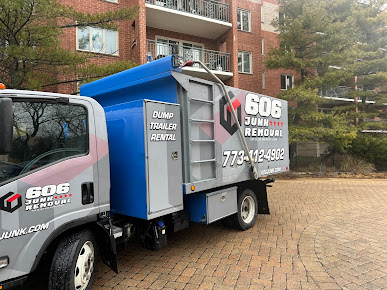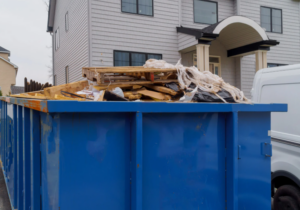
Before jumping into rental agreements, the first thing to unravel is the mystery of dumpster sizing. Too many assume bigger is better, yet that isn’t always the case in commercial setups. Every square inch counts. Choosing an oversized container might eat unnecessary space or budget, while undershooting capacity can stall workflow with overflows. What matters most is matching volume with waste output, not eyeballing dimensions.
In fast-paced environments, especially those with fluctuating debris loads, understanding the balance between size and need becomes a strategic play. It’s not as simple as measuring waste by sight. Material density, timeline, and accessibility all twist into the equation. Selecting the right dumpster isn’t just an operational decision—it shapes how a project breathes. Measure, forecast, and factor for the unexpected because once the container lands, every wasted inch becomes a missed opportunity for efficiency.
Timing Your Dumpster Rental to Avoid Downtime on Site
A ticking clock devours margins on any commercial build, and waste management is no innocent bystander. The delay between scheduling and receiving a dumpster can derail entire phases if poorly timed. Knowing when to book a unit isn’t about snapping fingers and hoping for prompt delivery. It requires a coordinated effort rooted in anticipation. Whether demolition kicks off Monday or installation wraps Friday, your dumpster should align with project milestones—not trail behind them.
Late delivery isn’t just an inconvenience—it bottlenecks productivity, clogs staging areas, and interrupts worker flow. Ideally, your container should arrive a few hours before you need it, not days after the site’s drowning in debris. And once it’s full? Prompt removal and replacement must already be on the calendar. That’s the secret sauce: preemptive coordination.

Navigating Permits and Placement with Local Ordinances in Mind
Dumpster placement is a dance with municipal red tape, and commercial clients in urban zones often miss a step. Chicago, for instance, doesn’t simply allow a container to drop wherever it fits. Sidewalks, alleys, and street-facing properties may require placement permits that aren’t optional. Ignore the process, and you might end up facing fines instead of finishing your project on time.
But it’s not just about rules—it’s about strategy. Positioning your dumpster near the work zone without blocking foot traffic or emergency lanes is an art. Too far, and your crew wastes hours hauling trash. Too close, and you risk obstructing walkways or angering inspectors. Understanding these spatial restrictions and zoning guidelines in advance turns logistical nightmares into smooth drop-offs. Secure your paperwork, study your boundaries, and let legal clarity guide your placement plans.
Dumpster Rental Provider That Understands Commercial Complexity
Not every dumpster rental company speaks the language of commercial sites. Some specialize in residential cleanouts, where timelines flex and stakes are low. Commercial projects, however, operate in a world where hours matter and miscommunication costs. It’s essential to partner with a provider who knows how to maneuver within tight deadlines, high volumes, and rigid site rules. They need to show up when they say they will—and then some.
Look beyond price tags. Instead, seek experience with industrial demands, familiarity with construction schedules, and a proven knack for fast turnarounds. It’s not about the cheapest bin on the block; it’s about reliability. A provider that can roll with shifting project dynamics without disrupting workflow becomes more than a vendor—they’re a hidden force behind your site’s efficiency. The right partnership changes everything.
Decoding Dumpster Rental Pricing Without the Fine Print Confusion
At first glance, dumpster rental rates seem straightforward—until hidden fees crash the party. Fuel surcharges, overage penalties, weight limits, rental extensions… the list goes on, and it turns what seemed like a flat fee into a ballooning invoice. Don’t just ask, “What’s the price?” Ask what the price includes.
Commercial clients, in particular, need transparent billing. Every unexpected charge erodes budget forecasts and project pacing. Weigh limits, pickup schedules, and access requirements should be defined up front. Are dump fees part of the quote? Will weather delays trigger extra charges? The rental agreement should answer these before a single scrap hits the bin. Clarity here means stability down the line—because no site wants to play guessing games with its bottom line.
Building a Waste Strategy Around Project Phases and Material Type
Not all debris is created equal. Wood, metal, drywall, and concrete don’t just vary in weight—they demand different disposal tactics. A savvy commercial crew doesn’t just fill bins at random. They separate, schedule, and plan based on volume trends and environmental compliance. That’s why mapping waste output by phase—demo, framing, finishing—can dramatically smooth operations.
When rentals are tailored to actual project rhythms, downtime shrinks and disposal costs lower. It’s about matching the right dumpster to the right debris at the right time. One container for heavy rubble, another for lighter general waste, and a third for recyclables? That level of intentionality doesn’t just help with workflow—it can align your site with local sustainability initiatives. Efficiency and ethics aren’t mutually exclusive. Plan smart, dump smarter.
Knowing When to Swap Dumpsters Before
- Keeps Crews Moving: Idle time is the enemy of productivity. When a dumpster is full and there’s no backup in sight, crews are forced to slow down or stop entirely. Scheduling timely swap-outs ensures that workers can keep their momentum, stay on task, and maintain the rhythm your project depends on to meet deadlines.
- Avoids Safety Hazards: Overflowing containers don’t just look messy—they’re dangerous. Debris piled high or scattered around can lead to injuries, equipment damage, and even OSHA violations. By planning swap-outs before things reach the breaking point, you keep your site cleaner, safer, and fully compliant with health and safety regulations every step of the way.
- Adapts to Real-Time Changes: No matter how tight your plan is, construction sites evolve. Maybe demolition moved faster than expected, or crews picked up the pace. Flexible dumpster scheduling lets you adjust waste removal to match real-time conditions. Having a plan—and a provider who can pivot—helps you handle those curveballs without missing a beat.
- Maximizes Efficiency: Nothing kills momentum like waiting around. Pre-scheduled dumpster swaps eliminate downtime and the chaos of last-minute requests. Instead of frantically calling for an emergency pickup, your team can keep working while waste removal runs like clockwork. Efficiency like that saves money, time, and a whole lot of stress in the long run.
- Improves Site Morale: A well-managed site reflects leadership and foresight. Workers notice when logistics are tight and the site stays clean. Dumpster chaos, on the other hand, breeds frustration. By planning ahead, you create an environment that’s easier to work in, builds team morale, and shows everyone that you’re running a professional operation.
Managing Site Safety with Smart Dumpster Placement and Access Routes
Dumpsters aren’t just containers—they’re obstacles when placed poorly. In commercial spaces already juggling machinery, ladders, and cables, their location can make or break your safety record. If placed near active walkways or poorly lit zones, dumpsters become hazards, not helpers. Prioritizing safety starts with understanding how equipment moves, where foot traffic flows, and how visibility changes throughout the day.
A well-positioned dumpster minimizes collisions and reduces cleanup time. It shouldn’t create new problems—it should solve them. Elevation changes, slippery surfaces, and proximity to power tools all factor into smart placement. Site supervisors should walk the space, simulate hauling paths, and position bins where effort and danger meet their lowest point. When waste disposal contributes to site safety, everyone wins. Strategy here isn’t optional—it’s essential.
Scaling Waste Management for Long-Term Commercial Builds
Short-term projects live fast and finish quickly, but what about builds that span months? Long-term commercial jobs demand evolving waste strategies. One size—or one dumpster—doesn’t fit all. As material use shifts from demolition to construction, disposal needs follow suit. You can’t expect the same solution to hold from start to finish.
Phased rental agreements allow for dynamic changes. Maybe you need multiple small dumpsters at first and one large roll-off later. Flexibility is king. Forecast your waste volume by project phase and choose a provider that offers on-demand delivery, replacement, and up-sizing. When a job evolves, so must your container strategy. It’s not about overplanning—it’s about adaptive planning. Change is inevitable. Build a rental system that can evolve with you.
Avoiding Illegal Dumping and Unauthorized Use on Commercial Sites
An unattended dumpster can become a free-for-all. Strangers toss in their household junk, neighbors drop off bulk items, and suddenly your bin’s filled with things your project didn’t create. Unauthorized dumping not only shortens your usage window—it can lead to fines or recycling violations. And once it’s in there? You’re responsible.
To prevent misuse, consider placement in fenced areas or supervised zones. If that’s not feasible, opt for locking lids or scheduled surveillance. This isn’t paranoia—it’s protection. In busy city zones, unsecured dumpsters are magnets for non-commercial trash. Controlling what enters your bin is as vital as tracking what leaves. It’s about ownership and accountability. Your site shouldn’t bear the cost of someone else’s mess.
Conclusion
Renting a dumpster for a commercial site isn’t just about dropping a metal box in a lot and hoping everything goes smoothly. It’s about foresight, strategy, adaptability, and precision. From understanding the intricacies of sizing and scheduling to navigating city regulations and anticipating jobsite shifts, the right waste management approach can uplift an entire project—or unravel it. Knowing when to order, where to place, how to swap, and what to avoid allows commercial clients to stay agile, efficient, and safe throughout their build.
For commercial dumpster rentals tailored to Chicago’s unique pace and logistical needs, 606 Junk Removal and Dumpster Rental offers a trusted solution. Based in Chicago, IL, they bring dependable service and deep local knowledge to every job. Call 773-412-4902 or email info@606junk.com to learn how they can streamline your next commercial site with the right dumpster at the right time.
